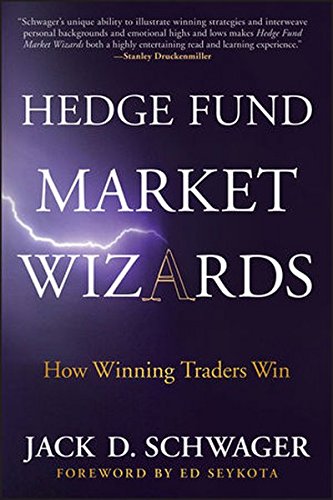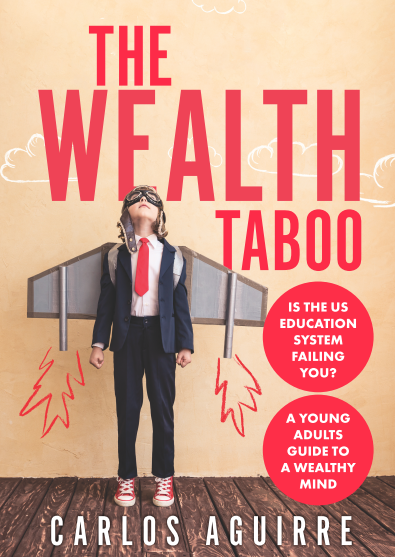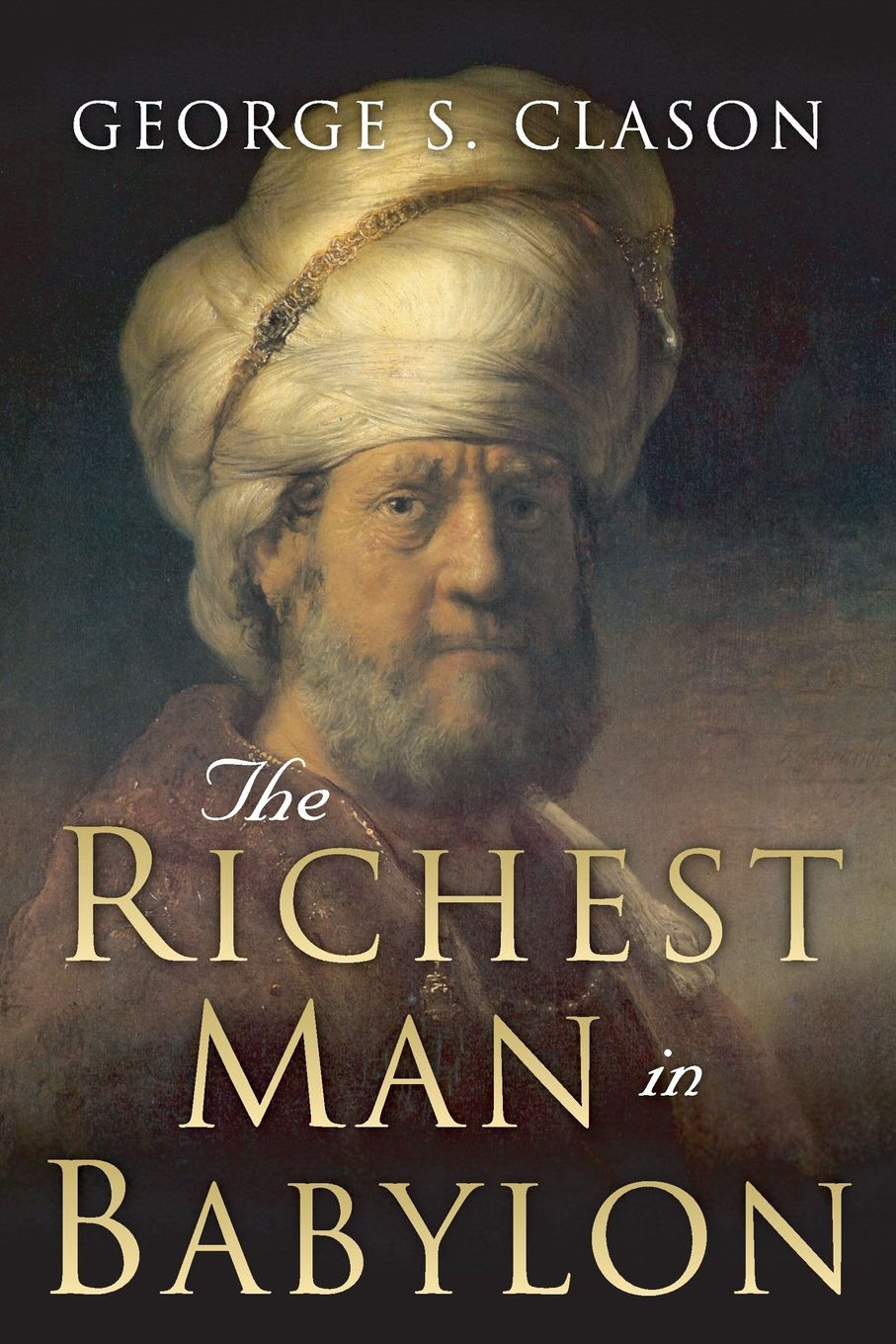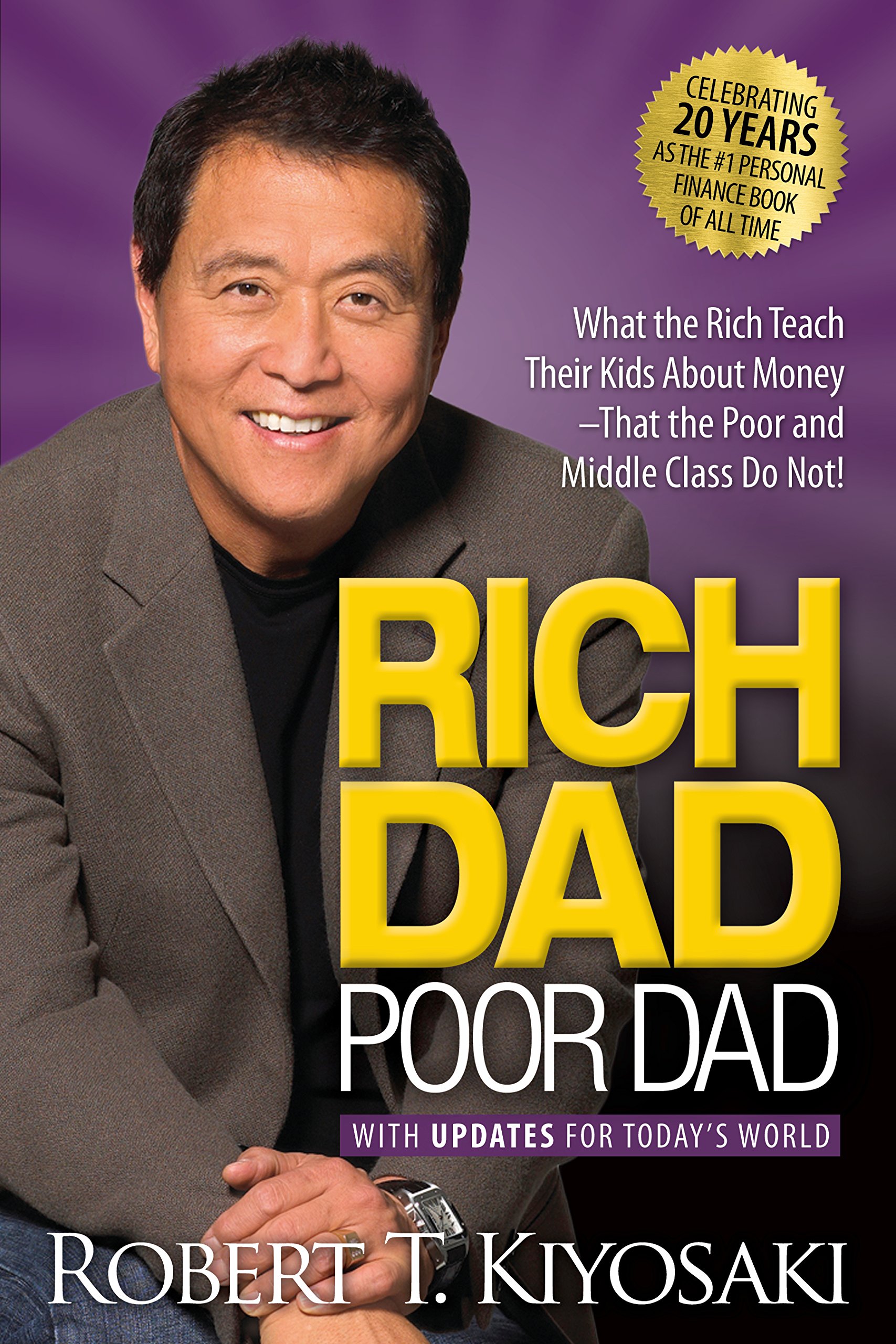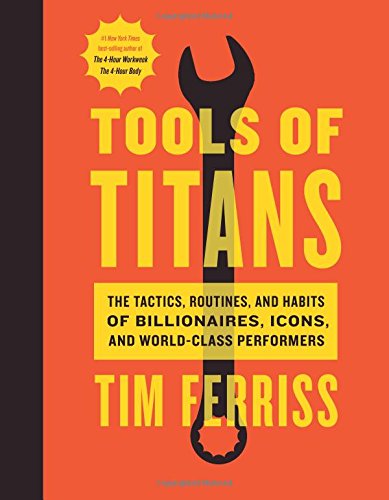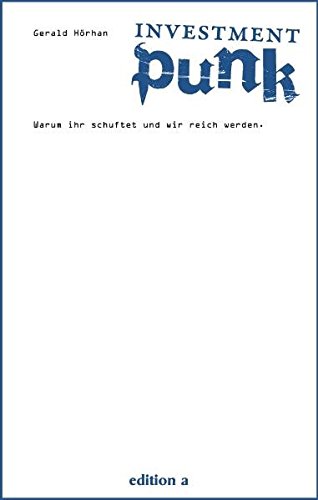Review: – Disclaimer: the German version comes as a trilogy, and I only read the first book about macro strategists, so technically this review only applies to one third of Hedge Fund Market Wizards. – Trading is easy now. Hundreds of online brokers and trading systems contend for your attention. Each one offers lower transaction fees, more professional analysis tools, better training videos and access to more exotic underlyings than the next. Trading consistently successful, however, is actually pretty hard. Like its predecessors (Market Wizards, New Market Wizards, and Stock Market Wizards), Hedge Fund Market Wizards, contains a series of interviews with successful traders. Author Jack Schwager, himself a recognized trading expert and fund manager, sat down with some of the top hedge fund managers to discuss their personal background and strategies. There is a lot more to trading than you would initially think. Some people trade systematically (using an algorithm to decide about trades), some are discretionary (using their intuition). There are trend followers (expecting a momentary trend to continue for some time) and those who expect a trend to revert to the mean. Some analyze fundamental market data, some just look at price charts. And I’m still taking…
Review: The Daily Telegraph Guide to Investing offers brief descriptions of investments, listed by risk category from pretty safe to high risk/reward assets. Discussed are standard investments like stocks, bonds and gold, but also more “wacky” physical assets like whisky, Lego sets and antique violins. What’s bad about The Daily Telegraph Guide to Investing? While Burn-Callander presents an illustrious variety of investment options, this is a rather slim book. Each investment option gets but a brief portrait, interested investors have to put in a lot of research to actually apply anything. Also, the book puts to much focus on rather obscure physical assets like red wine, Barbie dolls and comic books, that need tons of experience for even slightly accurate evaluations. Also, these kind of assets may be highly sought after by collectors now, but may be worthless in a few years. And even if they do accrue some value, all your profits are theoretical until you actually find someone to sell the thing to. Until then you get nothing and bear the full costs of ownership, like storage and insurance. The risk evaluation for each asset class is all over the place. Why is rental and let real estate…
Review: Just over a hundred pages is a plenty for a scientific thesis or any other format that presents one particular tiny detail with maximum depth. What can we find between the just over a hundred pages of The Wealth Taboo? The history and mechanism of the global banking system, how to read a balance sheet, personal finance and common financial instruments, the proper mindset, ways to generate income (with examples from a photography business), how to get a loan, the basics of networking, entrepreneurship, portfolio theory, the mechanics of inflation and how to find your purpose. The framing story of The Wealth Taboo is about Aguirre meeting his friends (he calls them his ”little friends”) for a picnic, and generously teaching them the most basic personal finance in a way that is both jovial and patronizing. The friends (they seem to be young adults based on what they do) ask questions so imbecilic that for a long time I thought they were young children. Or dogs. Nothing in The Wealth Taboo is wrong. But none of the many topics raised by the book is explained in satisfying depth. Readers with very little financial knowledge will take away some phrases…
Review: The Babylonians invented money. Unfortunately, not enough of it. The Richest Man in Babylon tells the secret how to acquire wealth, no matter what your current situation is. Does that sound too good to be true? Author George Clason chose to reveal the secret to through a series of unrelated fictional stories of rich and successful Babylonians. In the first story, we learn about the “seven cures for a lean purse”. The second story states the “five laws of gold”, which are basically the same thing. The other stories in The Richest Man in Babylon just hammer home the same points several times more. In a nutshell: keep ten percent of your income, reduce your expenses, invest profitably and get the advice of people that are experts in whatever investments you consider. Easy enough, almost trivial, but indeed the foundation of a future fortune. It is astonishing that not more people live that way. One question The Richest Man in Babylon leaves unanswered is how to spot and identify the good investments. Giving money to a brickmaker to purchase jewels is presented as an example of a stupid investment, because a brickmaker does not know enough about jewels. Then…
Review: The book that sparked a movement – a cult, really – and is still cited as the number one resource for learning how to amass wealth. Kiyosaki describes the lessons he learned from young age by his two father figures. His father – the poor Dad – was a teacher, highly educated and holding a well-paid job with the government, who struggled to pay his bills. His friend Mike’s father – the rich Dad – dropped out of school and owned several companies. So, how do you get rich? Buy assets first, then pay your bills. The rest of the book merely elaborates on this simple principle. But if it is that simple, why aren’t more people rich? Because it is not obvious, what is an asset, and what is a liability (so invest in your financial education). It is hard to spot great investments (so invest in your network). And it’s hard to not pay anybody else first (so form a company to buy assets with pre-tax money). Each chapter of Rich Dad, Poor Dad consists of four parts. First, Kiyosaki recites tales from his youth, and what his titular Dads taught him. This is followed by a…
Review Success is a vague concept, that everybody has their own definition of. Sometimes it means having a lot of money, or being famous, or just being respected by other experts in your field. Tools of Titans is a collection of success stories of different people, focusing on the daily habits they attribute their achievements to. The author suggests you pick and mix the advice you like while ignoring the stuff you think is stupid (which was quite a lot for me). Tools of Titans is divided into three parts, Healthy, Wealthy and Wise, which is a good thing, because these are where people have problems. The assignment of “Titans” to these categories is rather arbitrary, however, as usually many topics are discussed. Let’s have a look at each category on its own: Healthy Here is the list of additives the author and his guests recommend on a regular basis (probably not exhaustive): gelatin, beet root powder, magnesium, calcium, powdered coconut oil, branched-chain amino acids, butyric acid esters and several other ketones (disgusting stuff), metformin (a diabetes drug), lithium (an antidepressant), and psychedelic drugs like LSD or ibogaine. Feeling healthy already? Then add extended fasting, ketogenic diet (usually a medical…
Review If someone promised to show you the way to break out of your mediocrity and get rich and successful, would you want to listen to him? What if he wanted to spent some time bragging and belittling you first? Still? Now imagine the actual advice is blindingly obvious and insultingly vague. If you would still feel good about it, this book is for you. I bought the book for some out-of-the-box financial tips by an exceptional financial leader, as stated on the backside. Disappointingly, only about a third of the pages is actually about that. Brace yourself for never heard-of advice: New cars lose value very quickly. Houses are expensive, maybe renting suits you better. All debt has to be payed off at some point. Spend less than you earn. Start your own business, then you can work exclusively for your own wealth. Great advice, inspiring, maybe a bit superficial and not exactly the radical paradigm-shifting insights we were promised. Ok, so much for the good part of the book… What is the rest about? Insults and bragging. Many pages of Investment Punk are filled with rants against the middle class, usually in the form of strawman arguments with…
